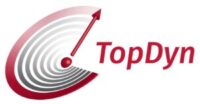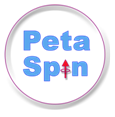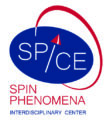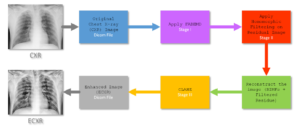Scope of the Workshop
Topology and Dynamics unite key fields of research that have recently spurred intense scientific interest but also cover the key functionalities of devices that require stable properties combined with ultra-fast and/or low power operation. The concept of topology plays an important role in nature and has implications in many fields of science as diverse as cosmology, particle physics, quantum manybody systems, superfluidity, liquid crystals, and metal-lurgy. The topology of a system is described by a topological charge, which emerges from the winding of an order parameter that lives in a space characterizing the eigenstates of the system. Topological properties of states of diverse nature now underpin such branches of applied science as topological electronics, skyrmion-based spintronics or quantum computing. This virtual workshop will provide an international forum to discuss about those topics and to identify potential future challenges. This workshop is organized with the TopDyn project (https://topdyn.uni-mainz.de/) funded in July 2019 as a collaboration of Johannes Gutenberg University Mainz, Technische Universität Kaiserslautern and Max Planck Institute for Polymer Research Mainz.
Program – October 7th, 2020
Steering committeeM. Kläui – Johannes Gutenberg-Universität Mainz, Mainz, Germany
J. Sinova – Johannes Gutenberg-Universität Mainz, Mainz, Germany
Y. Mokrousov – Johannes Gutenberg-Universität Mainz, Mainz, Germany
H. Ott – Technische Universität Kaiserslautern
B. Hillebrands – Technische Universität Kaiserslautern
M. Fleischhauer – Technische Universität Kaiserslautern
Join Zoom Meeting
https://zoom.us/j/91437598153?pwd=SllRZlVKL1MzbmErUmpnQklaelFRQT09
Meeting ID: 914 3759 8153
Passcode: 529545
How to Submit an Abstract
- All abstracts must be submitted electronically through the website petaspin.com (link is attached below).
- Abstracts sent via email, fax, or regular mail will not be processed or acknowledged.
- Corresponding author must login to his/her petaspin account or create a new account, select the conference “TopDyn Workshop” in the top-down menu, and proceed with submission.
- Acknowledgment of your submission will be sent via email. If you do not receive an email confirmation, your abstract has not been submitted. Please check the email address that you entered into the online system.
- Abstracts should be in the form of one page summary. Please, download here the abstract template (Workshop_template.doc, Workshop_templete.docx)
Sponsors






